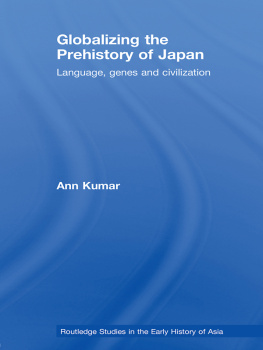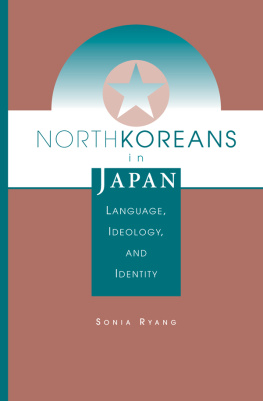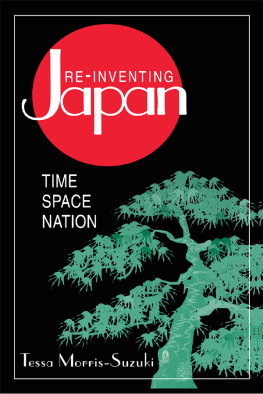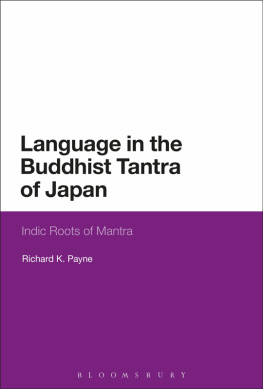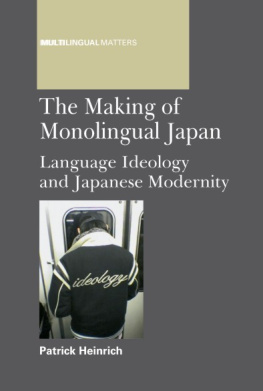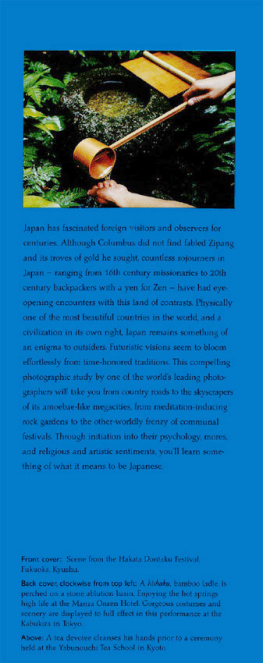LANGUAGE PLANNING AND LANGUAGE CHANGE IN JAPAN
NORDIC INSTITUTE OF ASIAN STUDIES
Recent Monographs
68. E XEMPLARY C ENTRE , A DMINISTRATIVE P ERIPHERY
Hans Antlv
69. F ISHING V ILLAGES IN T OKUGAWA J APAN
Arne Kalland
70. T HE H ONG M ERCHANTS OF C ANTON )
Weng Eang Cheong
71. A SIAN E NTREPRENEURIAL M INORITIES
Christine Dobbin
72. O RGANISING W OMEN'S P ROTEST
Eldrid Mageli
73. T HE O RAL T RADITION OF Y ANGZHOU S TORYTELLING
Vibeke Brdahl
74. A CCEPTING P OPULATION C ONTROL
Cecilia Nathansen Milwertz
75. M ANAGING M ARITAL D ISPUTES IN M ALAYSIA
Sharifah Zaleha Syed Hassan and Sven Cederroth
76. S UBUD AND THE J AVANESE M YSTICAL T RADITION
Antoon Geels
77. F OLK T ALES FROM K AMMU -VI: A S TORY -T ELLER'S L AST T ALES
Kristina Lindell, Jan-jvind Swahn and Damrong Tayanin
78. K INSHIP , H ONOUR AND M ONEY IN R URAL P AKISIAN
Alain Lefebvre
79. T HAILAND AND THE S OUTHEAST A SIAN N ETWORKS OF THE V IETNAMESE R EVOLUTION , 1885-1954
Christopher E. Goscha
80. I NDIAN A RT W ORLDS IN C ONTENTION
Helle Bundgaard
81. C ONSTRUCT1NG THE C OLONIAL E NCOUNTER
Niels Brimnes
82. R ELIGIOUS V IOLENCE IN C ONTEMPORARY J APAN
Ian Reader
83. M ONGOLIAN N OMADIC S OCIETY
Bat-Ochir Bold
84. I NDIGENOUS P EOPLES AND E THNIC M INORITIES OF P AKISTAN
Shaheen Sardar Ali and Javaid Rehman
85. L EE K UAN Y EW: T HE B ELIEFS B EHIND THE M AN
Michael D. Barr
86. L ANGUAGE P LANNING AND L ANGUAGE C HANGE IN J APAN
Tessa Carroll
87. F ERTILITY AND F AMILIAL P OWER R ELATIONS
Minna Svl
Acknowledgements
The research that led to this book, via a Ph.D. thesis, began in the mid-1980s, and the list of people whose help, support and encouragement made its completion possible has grown ever more lengthy over the intervening years. I owe a particular debt of gratitude to the Japanese Ministry of Education for the scholarship that allowed me to spend eighteen months in Osaka (1986-88) to improve my language skills and to gather materials. A later grant from the Japan Foundation Endowment Committee of the United Kingdom in February 1994 enabling me to carry out research in Tokyo was also invaluable.
Some of the research on language reform in local government in of the present volume.
My academic colleagues in Britain and further afield have been the source of immense support and inspiration. Ian Reader supervised my Ph.D. with a rare mix of academic rigour, efficiency, encouragement and humour. My thanks also go to Dorothy Reader for putting up with it all second-hand. Ian encouraged me to approach the Nordic Institute of Asian Studies (NIAS) as a possible publisher, and because of this I have had the pleasure of working with the publishing and editorial team there. In particular, Leena Hoskuldsson and Andrea Straub have guided me through the whole process with great patience and kindness. My thesis examiners, Michael Weiner of the University of Sheffield and Tanaka Keiko of the University of Oxford, enriched my research via perspectives from their own areas of expertise. Colleagues in Japanese Studies at Stirling University have provided useful comments throughout; most importantly, they took over my teaching and administrative duties during the sabbaticals that allowed me to complete this project. I am particularly grateful to John Crump as Head of Department for his support and for ensuring that other concerns did not impinge during that crucial time. Fumiko Hasegawa-Mclntyre came to the rescue many times, often at very short notice, by checking the readings of Japanese names. Val Hamilton tracked down many valuable sources, providing helpful comments along with encouragement and support well beyond the call of duty. Ian Gow also encouraged me, first at Aston University and then throughout his years at Stirling. Nanette Gottlieb of the University of Queensland provided many useful references and documents; the interest from someone working in the same area was greatly appreciated.
Further afield and further back in time, I also wish to thank Martha Worsching and Jeremv Leaman of the University of Loughborough for suggesting that I might consider doing postgraduate research when I was about to graduate and go to Japan for the first time, not knowing how much it would change my life. Dennis Ager of Aston University later provided both the opportunity to start postgraduate research and a grounding in linguistics.
Members of the Civil Service, the British Broadcasting Corporation (BBC) and the Plain English Campaign generously supplied much valuable comparative material via interviews and publications. I am also grateful to computing advisers Oron [offe and Marilyn Scott at the University of Stilling for their swift and cheerful expertise in resolving computer problems, and to staff at the University Library, particularly the Document Delivers Service.
In Japan, the cooperation of main people and organisations was vital, and I am enormously grateful to those who gave so freely of their time and knowledge. My greatest thanks go to Professor Tanaka Akio of Gakushuin University, for introducing me to many crucial contacts even after his responsibility for me at Osaka University of Foreign Studies had officially ended, and for main kindnesses over the years. I also wish to thank the following for generously giving their time for interviews and providing many essential materials: staff at the National Language Research Institute in Tokyo, particularly Sugito Seiju, Tsujino Tsukie and Ikeda Rieko; Ishino Hiroshi, Mogami Katsuva and Yasuhira Minako of the Language Research Group, NHK Broadcasting Culture Research Institute, Tokyo; staff at the National Language Section, Ministry of Education, Tokyo, particularly Ujihara Motoyoshi; schools inspectors at the Ministry of Education, Tokyo; and Kitta Hirokuni of the Romajikai. Several friends and former students now in Japan, especially Nishino Sachiko, Roy Larke, Andrew Platts and Sasaki Yuriko, also sent many vital documents difficult to obtain in this country.
Despite the comments, help and support of all of these people, the present book and any errors it may contain are, of course, my own responsibility.
Finally, but most importantly, those closest to home deserve my greatest thanks. Without the thesis, there would never have been a book. Thanks therefore to my father, who never stopped asking 'How's the Ph.D. going?', and to my mother, who tried her tactful best to stop him. The person who has given the greatest practical and moral support throughout is my partner Dave Hewitt, who patiently put up with first the thesis and then the book taking over a large chunk of his life over the last few years. Most importantly, he has also taken me up many hills and so has given a vital balance to the metaphorical mountain of research, using the same words for both when I feared I wouldn't get there: 'Ah, but look how far you've come; it's not that much further now.' And, thanks to all these people, it wasn't.



